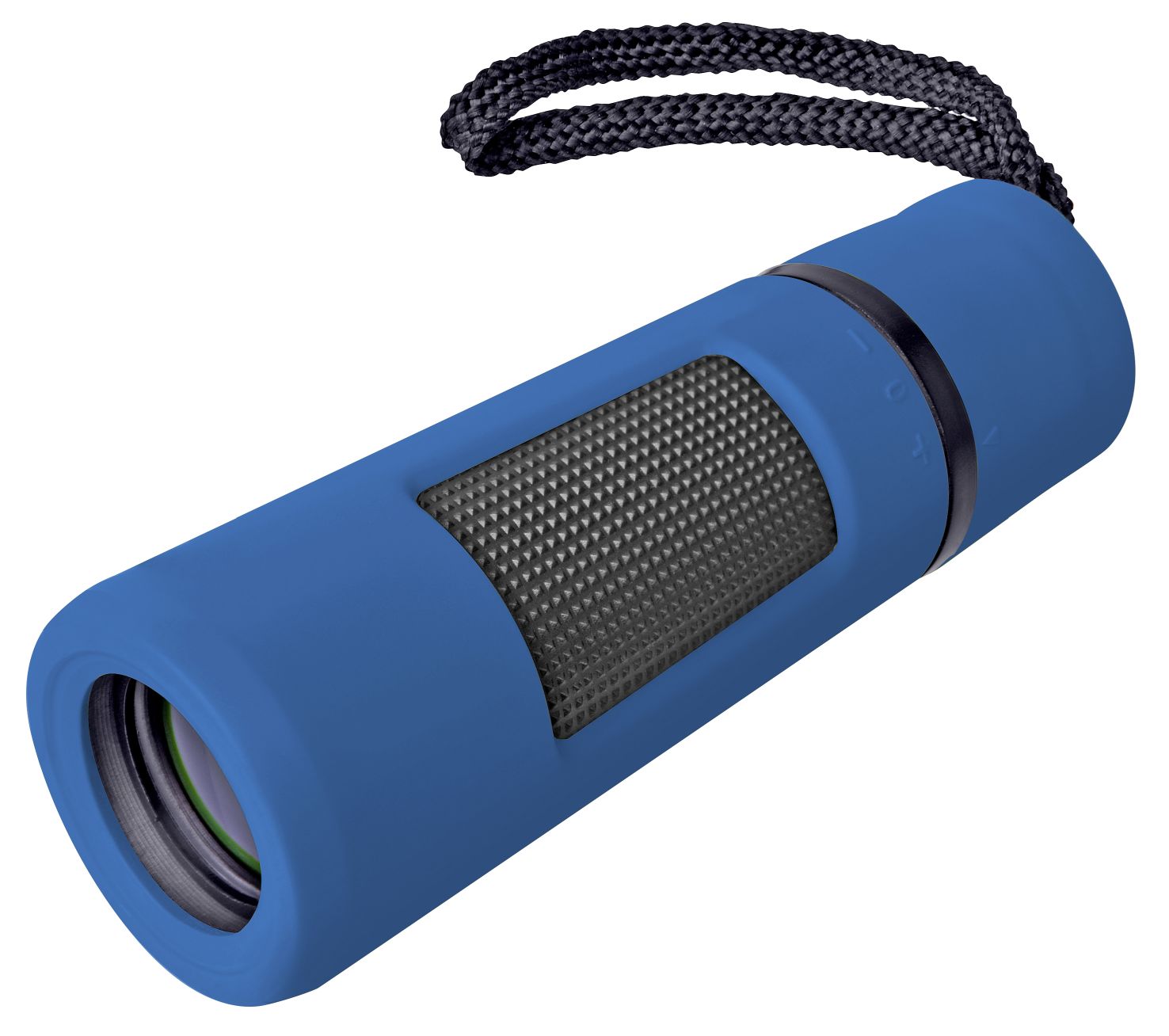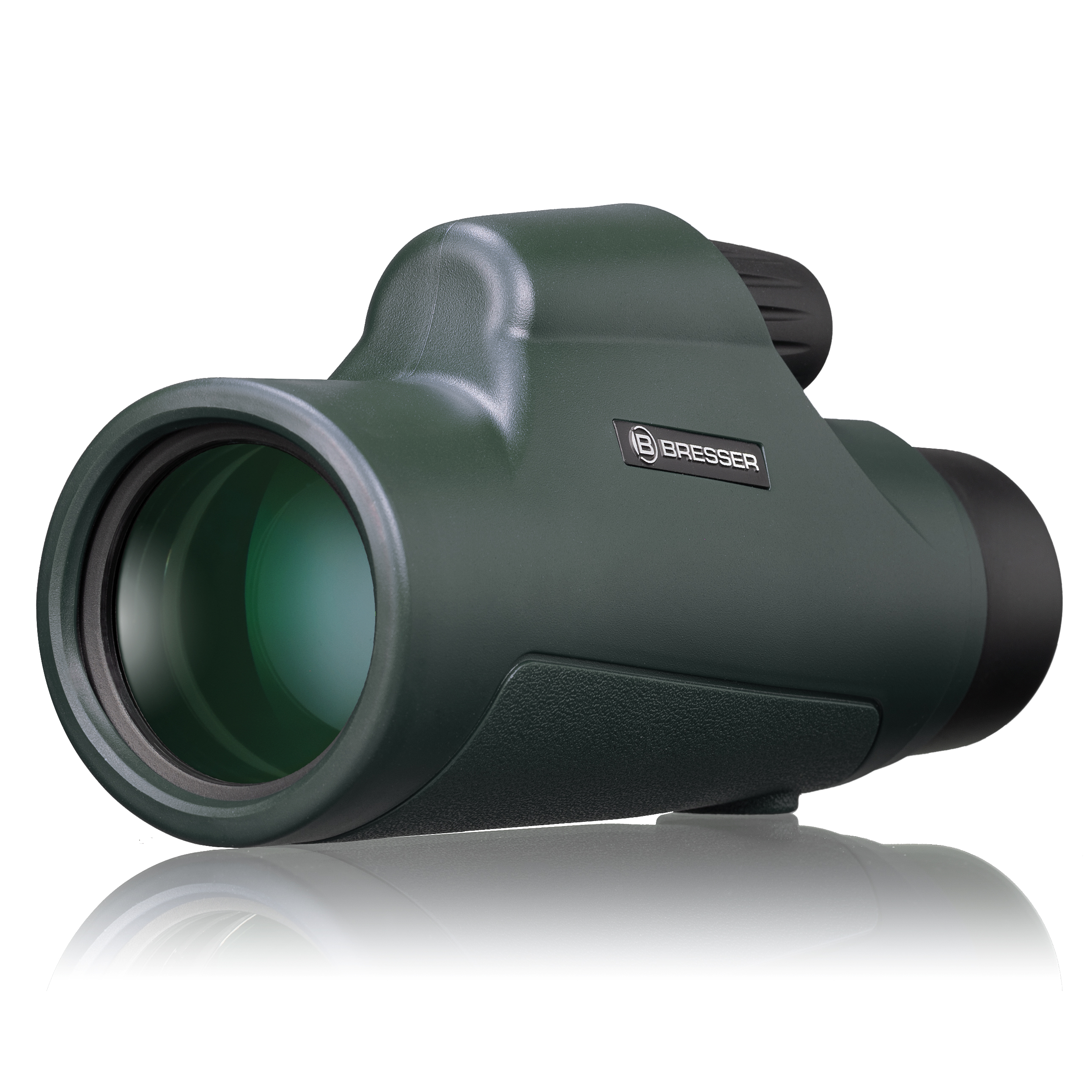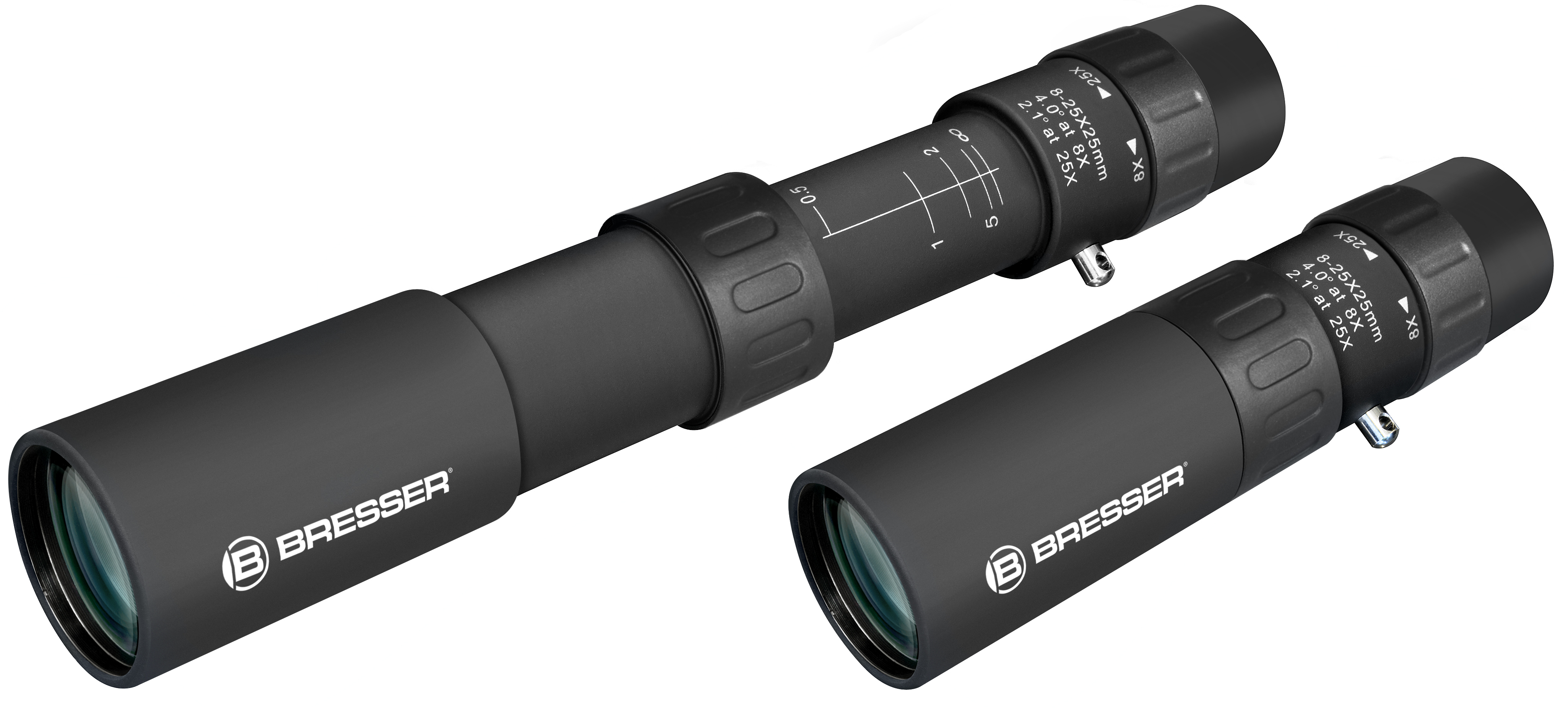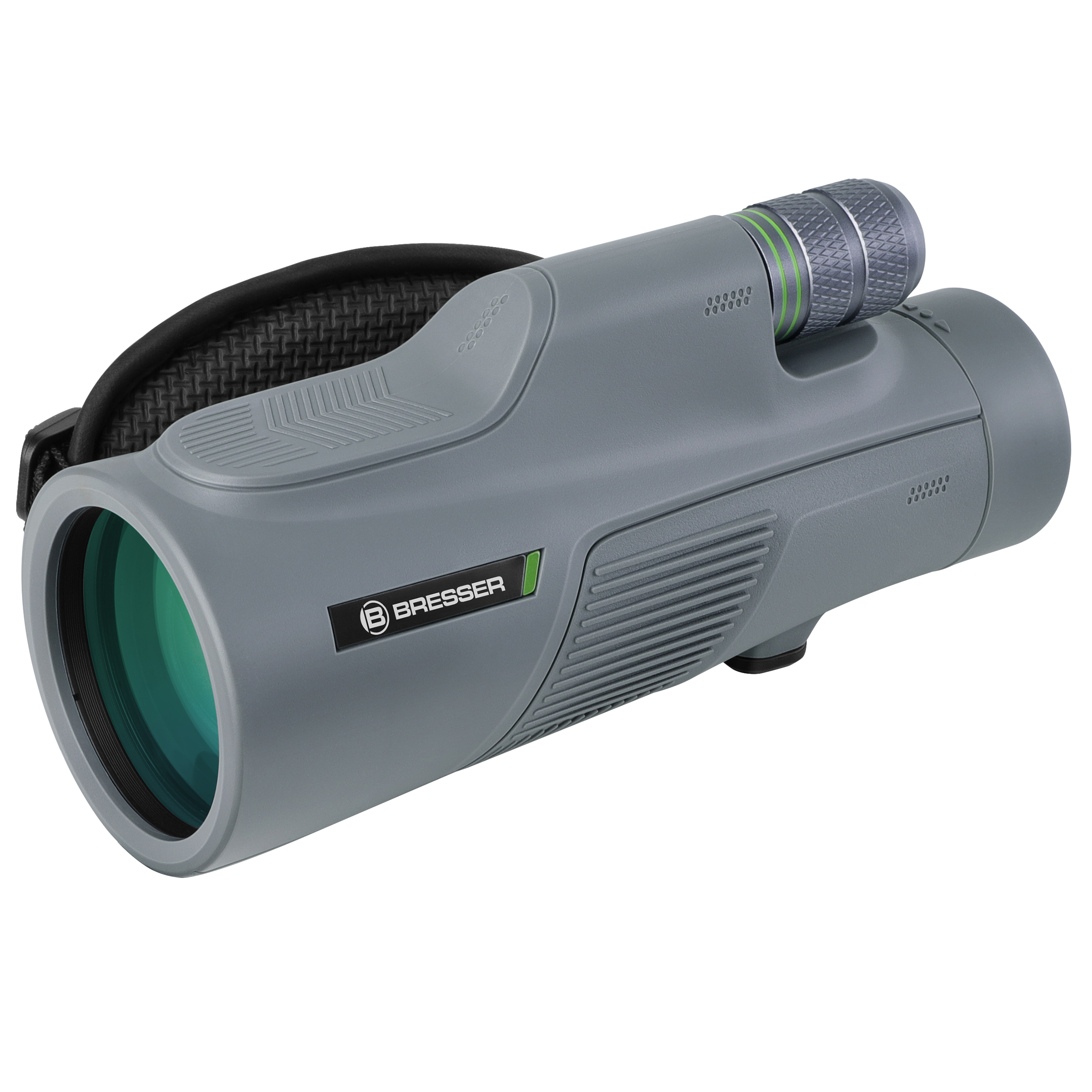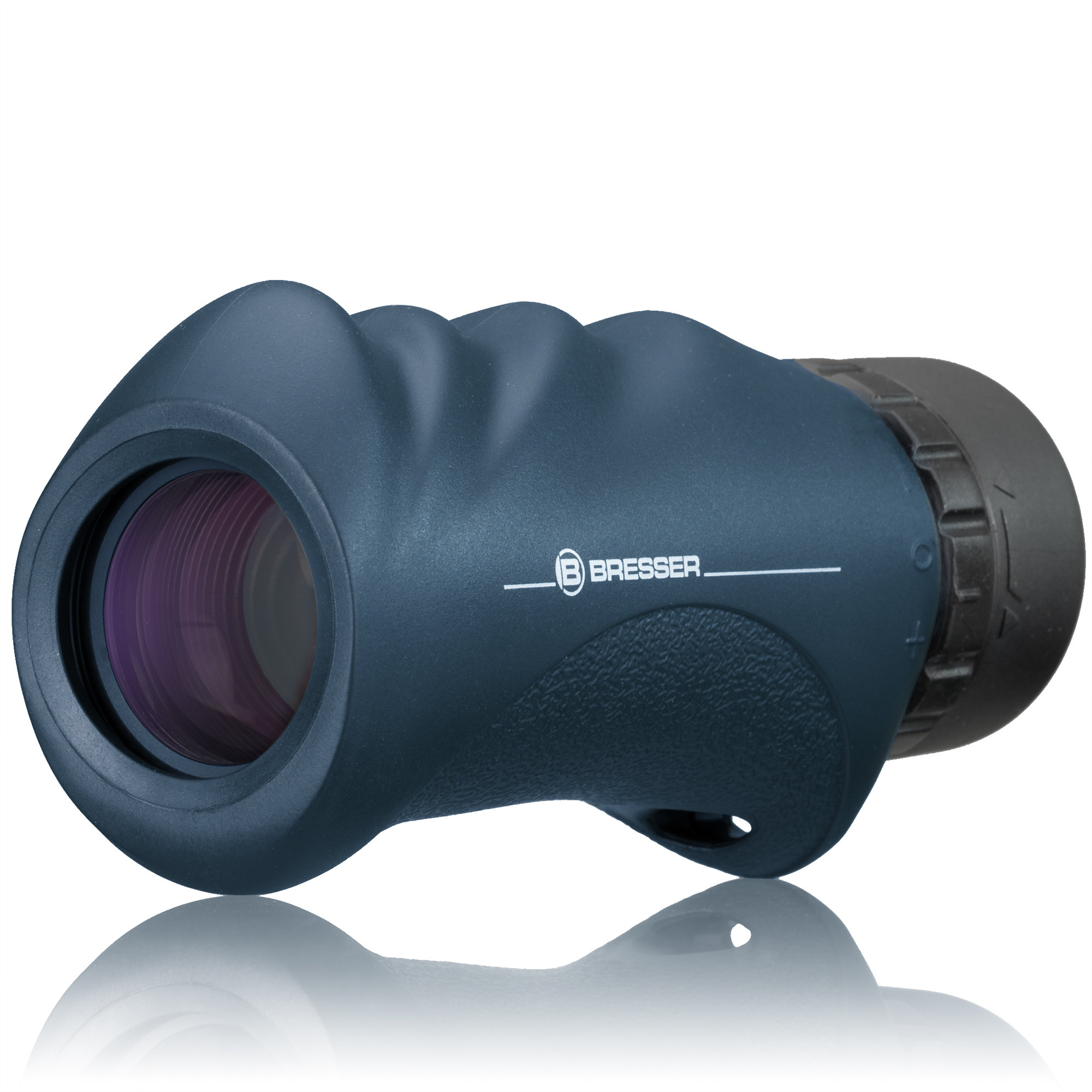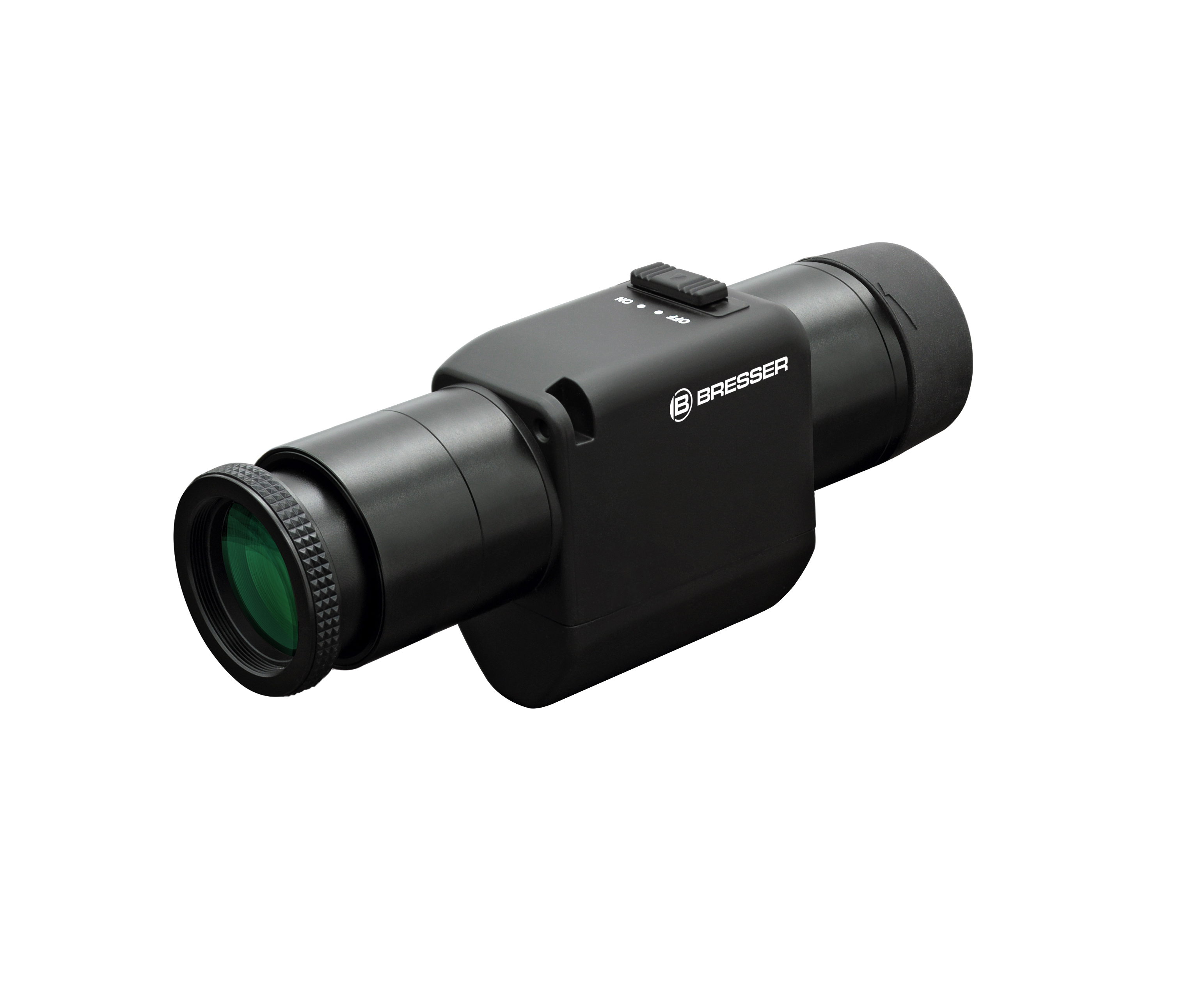Embarking on Your Cosmic Journey with BRESSER Astronomy Equipment
As you gaze up at the night sky, an endless tapestry of cosmic wonders, our astronomy equipment will help you unravel the mysteries of the universe. Whether you are a beginner, an advanced amateur or a specialist, you will surely find the astronomical devices and accessories you need.
After all, BRESSER has been offering high quality optics since 1957. So, we know very well that the right telescope, binoculars and astronomy accessories are your keys to unlocking the celestial wonders. However, especially for beginners the choices can be overwhelming. That’s why we’ve answered the most frequently asked questions on this topic below.
What Makes a Good Telescope for Beginners?
If you have questions like this, we have some answers for you below.
What are Monoculars Used for?
Monoculars are an essential tool for various activities, each benefiting from specific features of these versatile devices. Here's how to choose the right monocular for different applications:
- Going for a Walk: For those who enjoy leisurely strolls through parks or nature reserves, a compact monocular is perfect. It's easy to carry around your neck or in a pocket, enabling you to quickly zoom in on distant birds or other wildlife without the need for bulky equipment.
- Hiking: When you're navigating challenging terrains, a lightweight monocular proves invaluable. It's not just about reducing your load; a lightweight model is easy to handle and quick to deploy, allowing you to scout the path ahead or observe distant landmarks without slowing down.
- Travel: Travelling often involves moving quickly and encountering a variety of environments, so a durable monocular with robust construction is ideal. Such monoculars are designed to withstand drops and exposure to elements, ensuring that whether you're exploring urban landscapes or rugged terrains, your view remains clear and undisturbed. A durable monocular can also come with added benefits like anti-reflective coatings, enhancing visibility in bright conditions – perfect for sunny travel destinations.
- Events (sports, concerts etc.): At crowded events where action happens at a distance, a high magnification monocular brings you closer to the excitement. Opt for a model that provides not only high magnification but also a wide field of view, allowing you to appreciate the full scope of performances or games. Enhanced features like image stabilization can be particularly helpful in these settings, ensuring that even with high zoom, your viewing experience remains steady and enjoyable.
- Water Sports: For water sports enthusiasts, a waterproof monocular is crucial. These are specifically designed to resist water intrusion, often featuring nitrogen-purged optics to prevent internal fogging from sudden temperature changes. Such monoculars not only offer clarity under wet conditions but also typically come with rugged, rubberized exteriors to ensure a secure grip, even when wet. This makes them perfect for kayaking, boating, or observing marine life from the shore. Due to the shaky ground on a boat or ship, the magnification should not be too high in order to enjoy a steady image.
What is a Good Monocular?
Selecting the ideal monocular for your needs involves a detailed consideration of various factors. Here’s a checklist to guide you through making an informed decision:
- Optical Quality: Seek out monoculars with lenses made from special optical glass that offer high contrast for clear, vivid images. Premium glass and superior lens coatings such as multi coating or full multi coating can significantly enhance light transmission and reduce glare.
- Magnification: The right magnification depends on your primary use. Typically, 6x to 10x magnification is suitable for most outdoor activities. Remember that higher magnification will narrow your field of view, which can make it difficult to track moving objects. However, when viewing still subjects a higher magnification can be beneficial.
- Objective Diameter: Larger objective lenses (the front lens) allow more light to enter, improving visibility in low light conditions. Sizes typically range from 20 mm to 50 mm. Larger lenses offer brighter images but can increase the size and weight of the monocular.
- Durability: Durability is crucial, especially for outdoor adventurers. Look for monoculars that are not only waterproof but also shock-resistant to withstand tough handling and varying environmental conditions.
- Ease of Use: Features such as a smooth focus wheel, a comfortable grip, and an ergonomic design make a monocular more user-friendly. Adjustable eyecups can improve comfort and are important for spectacle wearers in order to enjoy the view with their glasses on.
- Field of View (FOV): The field of view is the width of the area seen through the monocular at a specific distance. A wider field of view is useful for tracking moving subjects like wildlife or sports events.
- Price and Value: Evaluate the price in relation to the features provided. Investing a bit more in a monocular can offer better longevity and a more satisfying viewing experience, but it’s important to consider what features you truly need.
- Additional Features: Some monoculars come with extra capabilities such as built-in rangefinders, image stabilization, and night vision. Consider whether these enhancements align with your activities to justify the additional expense. By meticulously considering each of these aspects, you can select a monocular that not only fits your specific viewing needs but also offers comfort and durability for prolonged use.
Is a Monocular Better than Binoculars?
When deciding between monoculars and binoculars, it's important to recognize that each has its distinct advantages depending on the intended use. So take a look at the key features of both, before determining which device best suits your specific needs:
| Feature | Monocular | Binoculars |
| Size & Weight | Lighter and more compact, making them easier to carry and store, ideal for quick or spontaneous use. | Generally bulkier and heavier, offering more stability and comfort during extended use. |
| Depth Perception | Limited depth perception due to one optical channel, which might affect the perception of distance and spatial relationships. | Better depth perception thanks to binocular vision, providing a more immersive and '3D' view of the environment. |
| Optical Quality | High-quality optics are available, but the single lens system can limit the brightness and resolution compared to binoculars. | Typically offer superior brightness and clarity due to larger lenses and the dual optical channels enhancing the overall image quality. |
| Portability | Extremely portable, easily fitting into a pocket or a small bag, perfect for hikers or those on the move. | Less portable and require more space for storage, making them less ideal for those who need to travel light. |
| Usage Convenience | Simple to use with one hand, suitable for quick viewing scenarios where setting up or using both hands is impractical. | Require both hands for stable viewing, which can be more cumbersome but results in a steadier image for detailed observations. |
To sum up: Monoculars are ideal for those who prioritize portability and ease of use, such as hikers and travellers who need to pack light and move quickly. They are perfect for quick, one-handed viewing in varied situations. On the other hand, binoculars are better suited for users requiring more stable, extended observations with superior depth perception and optical quality, such as nature and bird watchers or astronomy enthusiasts who appreciate a more immersive viewing experience.
What is the Best Magnification for a Monocular?
Selecting the right magnification for your monocular depends significantly on your intended use, as it influences both the level of detail you can see and the ease with which you can track subjects:
- General Use: A magnification of 8x is typically ideal for general purposes. This range offers a practical balance, providing enough magnification to see details at a distance without overly narrowing your field of view, making it easier to observe larger areas.
- Bird Watching and Nature Observations: For activities that require you to spot fine details at greater distances, such as bird watching or observing wildlife, a magnification of 10x or more is advantageous. This higher magnification allows for closer views and more detailed examination of distant subjects. However, it's important to note that higher magnifications can make the image shakier if the monocular is not stabilized, either with a tripod or a steady hand.
- Events and Large-Area Viewing: At concerts, sports events, or any large, scenic views, a magnification around 6x to 8x is preferable. This setting provides a wider field of view, allowing you to take in more of the scene at once, which is perfect for watching fast-moving sports or large stage setups.
Why Choose BRESSER UK for Monoculars?
High-quality telescopes, binoculars, microscopes and more – BRESSER UK brings over 60 years of expertise in optical technology to every product we offer. So our monoculars are crafted with precision to ensure superior quality, functionality, and reliability. Whether you are an enthusiastic beginner or a seasoned professional, our range is meticulously designed to enhance your viewing experience in any setting. We understand the importance of details in optical devices, which is why each monocular is tested to meet rigorous standards before reaching you. Additionally, our competent and friendly service team is always ready to assist, ensuring that you receive not only a product but a full support experience tailored to your needs.
Find your perfect monocular at BRESSER UK and start your adventure today!


